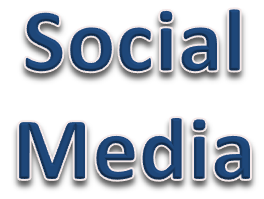What is social media? I hear this question from executives and conference attendees alike. And the question was asked again this week on For Immediate Release, the excellent podcast by Shel Holtz and Neville Hobson.
Social media has evolved rapidly. So, I thought it would be time to update the definition I published in 2008. Here’s the definition I offer today:
Social media are online communications in which we shift instantly and easily between the role of audience and creator – without needing to know how to code. We do this by using social software that incorporates functions like publishing, sharing, friending, commenting, linking and tagging.
Essentials of Social Media
Invariably, when I present this definition, I see people’s heads nodding. Why? Because it presents the definition of social media from the perspective of the user, not the technologist. It also hits on the essentials of social media:
- Online: We’ve always been social beings. But social media allows us to express ourselves and connect with others who share our interests regardless of where they are. Being online extends our reach to anyone who has an Internet connection.
- Audience and creator: We have a voice, and given that voice, we’ll use it.
- No need to know how to code: This is the big difference between Web 1.0 and Web 2.0. It’s the factor that opened social media to all of us. In Web 1.0, publishing was restricted to those who had coding skills or those who could afford to hire them. Today, we all are publishers.
- Social functions: This is what it comes down to. The reason we participate. What can we do with the software? Express ourselves, find others, share, form community.
Take it. Use it.
That’s how I define social media. If it makes sense to you, feel free to use it. And if you think I’ve missed something, please leave a comment below. I’m always keen to improve it.

